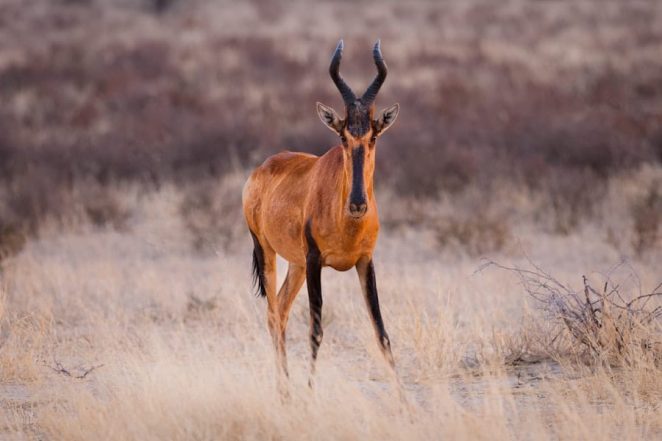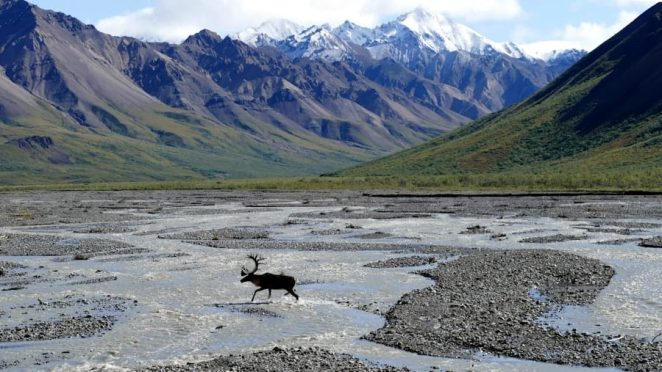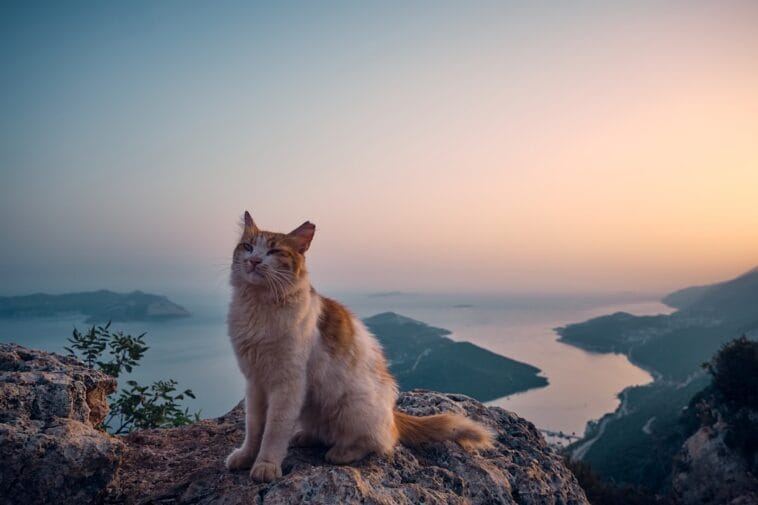Africa is a continent rich in biodiversity and natural beauty, making it a premier destination for safari enthusiasts. Among the myriad of options, Tanzania stands out with its iconic Serengeti National Park, renowned for the Great Migration, where millions of wildebeest and zebras traverse the plains in search of greener pastures. This annual spectacle, which typically occurs between June and September, offers unparalleled opportunities for wildlife viewing and photography.
The Serengeti’s vast landscapes, dotted with acacia trees and teeming with predators like lions and cheetahs, create a dramatic backdrop for any safari adventure. Kenya is another top contender, particularly the Maasai Mara National Reserve, which shares its ecosystem with the Serengeti. The Mara is famous for its high concentration of big cats and the annual migration of wildebeest.
Visitors can witness thrilling predator-prey interactions, as well as engage with the local Maasai culture. The landscape is characterized by rolling savannahs, riverine forests, and the iconic Mara River, where dramatic crossings occur during migration season. Both Tanzania and Kenya offer diverse experiences that cater to different interests, from luxury lodges to budget camping options.
Botswana’s Okavango Delta presents a unique safari experience unlike any other. This UNESCO World Heritage site is a vast inland delta that floods seasonally, creating a lush paradise for wildlife. The delta’s waterways are home to hippos, crocodiles, and a plethora of bird species, while the surrounding land supports elephants, leopards, and more.
Exploring the delta by mokoro (traditional canoe) allows visitors to immerse themselves in the tranquil beauty of the environment while observing wildlife up close. The combination of water and land-based safaris in Botswana offers a diverse range of experiences that are hard to replicate elsewhere. South Africa’s Kruger National Park is one of the largest game reserves in Africa and is renowned for its accessibility and variety of wildlife.
With a well-developed infrastructure, Kruger allows for self-drive safaris as well as guided tours. The park is home to the Big Five—lion, leopard, elephant, buffalo, and rhinoceros—making it a prime location for those seeking to tick these iconic animals off their bucket list. Additionally, the park’s diverse ecosystems range from savannahs to dense bushveld, providing habitats for an array of species.
The nearby Panorama Route offers stunning views of natural wonders like Blyde River Canyon, enhancing the overall safari experience. Namibia’s Etosha National Park is another remarkable destination that captivates visitors with its stark beauty and unique wildlife viewing opportunities. The park is centered around a massive salt pan that attracts a variety of animals during the dry season when water sources become scarce.
Visitors can witness large herds of elephants, giraffes, and antelopes congregating around waterholes, creating dramatic scenes against the backdrop of the arid landscape. The park’s diverse habitats support an impressive array of wildlife, including endangered species like the black rhino. Etosha’s accessibility and well-maintained roads make it an excellent choice for self-drive safaris. Book your next Flight at https://aviasales.tp.st/R1WdipD2.
Key Takeaways
- The best safari destinations in Africa include the Serengeti in Tanzania, Maasai Mara in Kenya, Okavango Delta in Botswana, Kruger National Park in South Africa, and Etosha National Park in Namibia.
- The most impressive wildlife to see on safari includes the Big Five (lion, elephant, buffalo, leopard, and rhinoceros), as well as cheetahs, giraffes, zebras, and wildebeests.
- Tips for planning the ultimate safari adventure include choosing the right time of year, booking accommodations in advance, and considering a guided tour for a more immersive experience.
- The top safari lodges and camps in Africa offer luxurious accommodations and immersive wildlife experiences, such as Singita Grumeti in Tanzania and Mombo Camp in Botswana.
- When choosing the best safari tour operator, consider their reputation, experience, and commitment to responsible wildlife tourism.
- When packing for your African safari, essentials include lightweight clothing, sturdy walking shoes, a hat, sunscreen, insect repellent, and a good camera for capturing wildlife moments.
- The importance of responsible wildlife tourism cannot be overstated, as it ensures the protection of wildlife and their natural habitats for future generations to enjoy.
- Unforgettable safari activities and experiences include hot air balloon rides over the savannah, guided walking safaris, and cultural interactions with local communities.
The Most Impressive Wildlife to See on Safari
The Big Five: Unique Characteristics and Behaviors
Among the most sought-after animals are the Big Five: leopards, elephants, buffaloes, and rhinoceroses. Each of these species has its own unique characteristics and behaviors that make them fascinating to observe in their natural habitats. For instance, lions are social animals that live in prides, often seen lounging under trees or engaging in cooperative hunting strategies. Witnessing a lioness teach her cubs to hunt or observing a pride interact can be a profound experience. Leopards, on the other hand, are elusive and solitary creatures known for their stealth and adaptability.
Africa’s Diverse Wildlife
In addition to the Big Five, Africa boasts an astonishing variety of other wildlife that enriches the safari experience. Giraffes are often seen browsing on treetops with their long necks, while zebras add striking patterns to the landscape as they graze in herds. Cheetahs are renowned for their speed and grace; spotting one in full sprint while chasing down prey is an exhilarating moment for any safari-goer. Furthermore, Africa is home to an impressive array of bird species, including vibrant kingfishers, majestic eagles, and colorful weavers. Birdwatching enthusiasts will find themselves captivated by the diversity and beauty of avian life throughout various ecosystems.
Marine Life Encounters
The marine life along Africa’s coasts also offers unique opportunities for wildlife encounters. In places like South Africa’s Cape Town or Mozambique’s Bazaruto Archipelago, visitors can engage in activities such as whale watching or snorkeling with dolphins. These experiences provide a different perspective on Africa’s rich biodiversity and highlight the importance of conserving both terrestrial and marine ecosystems.
Tips for Planning the Ultimate Safari Adventure

Planning a safari requires careful consideration to ensure an unforgettable experience tailored to individual preferences and interests. One of the first steps is determining the best time to visit based on wildlife activity and seasonal variations. For instance, many travelers aim for the dry season when animals congregate around water sources, making them easier to spot.
In East Africa, this typically falls between June and October, coinciding with the Great Migration in Tanzania and Kenya. Conversely, Southern Africa’s dry season runs from May to September, offering excellent game viewing opportunities in places like Kruger National Park. Choosing the right type of safari is equally important.
Options range from traditional game drives in open vehicles to walking safaris that allow for a more intimate connection with nature. For those seeking adventure, hot air balloon rides over the Serengeti or mokoro excursions in Botswana’s Okavango Delta provide unique perspectives on wildlife and landscapes. Additionally, some travelers may prefer luxury lodges with all-inclusive amenities while others might opt for budget-friendly camping experiences that immerse them in nature.
Researching accommodations is crucial for enhancing the overall safari experience. Many lodges and camps offer varying levels of comfort and amenities; some provide private plunge pools or gourmet dining experiences while others focus on rustic charm and authenticity. It’s essential to consider factors such as location within national parks or reserves, as proximity to key wildlife areas can significantly impact game viewing opportunities.
Reading reviews from previous guests can also provide valuable insights into what to expect during your stay. Another vital aspect of planning is understanding health and safety considerations when traveling in Africa. Vaccinations may be required or recommended depending on your destination; consulting with a healthcare professional before departure is advisable.
Additionally, travelers should be aware of potential risks such as malaria in certain regions and take appropriate precautions like using insect repellent or taking prophylactic medication.
The Top Safari Lodges and Camps in Africa
| Lodge/Camp Name | Location | Number of Rooms/Tents | Price Range | Activities |
|---|---|---|---|---|
| Singita Grumeti | Tanzania | 20 | 1500 – 2500 per night | Game drives, walking safaris, hot air balloon safaris |
| andBeyond Phinda Private Game Reserve | South Africa | 30 | 1000 – 2000 per night | Game drives, bush walks, rhino tracking |
| Mara Plains Camp | Kenya | 14 | 800 – 1500 per night | Game drives, walking safaris, cultural visits |
| Chobe Game Lodge | Botswana | 46 | 600 – 1000 per night | Game drives, boat cruises, bird watching |
When it comes to choosing accommodations for a safari adventure, Africa offers an impressive array of lodges and camps that cater to various tastes and budgets. In Tanzania’s Serengeti National Park, one standout option is Four Seasons Safari Lodge Serengeti. This luxurious lodge features stunning views over a watering hole frequented by elephants and other wildlife.
Guests can enjoy spacious rooms with private balconies while indulging in gourmet dining experiences after exhilarating game drives. For those seeking an authentic tented camp experience, Olakira Camp in Tanzania provides a unique opportunity to follow the Great Migration as it moves across the Serengeti plains. This mobile camp shifts locations seasonally to remain close to the action, allowing guests to witness wildlife up close while enjoying comfortable accommodations under canvas tents equipped with en-suite bathrooms.
In Botswana’s Okavango Delta, Mombo Camp is often regarded as one of Africa’s premier safari lodges due to its exceptional game viewing opportunities and luxurious amenities. Located on Chief’s Island within Moremi Game Reserve, Mombo Camp offers guests access to some of the highest concentrations of wildlife in Africa while providing elegant accommodations complete with private decks overlooking pristine wilderness. South Africa’s Sabi Sands Game Reserve adjacent to Kruger National Park boasts several high-end lodges known for their exceptional service and wildlife encounters.
Singita Boulders Lodge combines luxury with sustainability; its design harmonizes with nature while offering guests unparalleled access to diverse wildlife through guided game drives led by expert rangers. For budget-conscious travelers looking for immersive experiences without sacrificing comfort, many camps offer affordable options without compromising on quality or service. In Kenya’s Maasai Mara National Reserve, Enkewa Camp provides an intimate setting with personalized service while allowing guests to engage directly with local Maasai communities through cultural experiences.
How to Choose the Best Safari Tour Operator
Selecting a reputable safari tour operator is crucial for ensuring a seamless experience during your African adventure. Start by researching operators that specialize in your desired destination; some may focus on specific regions or types of safaris such as luxury or budget-friendly options. Reading reviews from previous clients can provide valuable insights into their experiences with different operators.
It’s essential to consider factors such as group size when choosing an operator; smaller groups often allow for more personalized attention from guides and enhance overall wildlife viewing opportunities. Additionally, inquire about the qualifications and experience of guides who will be leading your safari; knowledgeable guides can significantly enrich your experience by sharing insights about animal behavior and local ecosystems. Another important aspect is understanding what is included in your safari package; some operators may offer all-inclusive options while others may charge extra for activities or meals outside standard itineraries.
Clarifying these details upfront can help avoid unexpected costs during your trip. Sustainability practices should also be taken into account when selecting a tour operator; many companies prioritize responsible tourism initiatives that benefit local communities and protect wildlife habitats. Supporting operators committed to conservation efforts ensures that your travel has a positive impact on both people and nature.
Finally, don’t hesitate to reach out directly to operators with any questions or concerns you may have before booking; their responsiveness can be indicative of their level of customer service throughout your journey.
What to Pack for Your African Safari

Packing appropriately for an African safari is essential for comfort and enjoyment during your adventure. Start by considering clothing that suits both warm daytime temperatures and cooler evenings; lightweight layers are ideal as they allow you to adjust according to changing weather conditions throughout the day. Neutral colors such as khaki or olive green are recommended since they blend well into natural surroundings without startling wildlife.
Comfortable footwear is crucial; sturdy walking shoes or boots are necessary for game drives or walking safaris while sandals can be useful during downtime at lodges or camps. Don’t forget essentials like hats or caps to protect against sun exposure along with sunglasses featuring UV protection. Insect repellent containing DEET is vital for warding off mosquitoes; this becomes particularly important if you’re traveling to areas where malaria is prevalent.
Additionally, packing sunscreen with high SPF will help protect your skin from harsh sun rays during outdoor activities. A good pair of binoculars enhances wildlife viewing experiences significantly; being able to observe animals from afar without disturbing them adds depth to your safari adventure. A camera with zoom capabilities is also essential for capturing memories; consider bringing extra batteries or memory cards since charging options may be limited in remote areas.
Lastly, don’t forget personal items such as medications you may need during your trip along with travel insurance documentation; being prepared ensures peace of mind throughout your journey.
The Importance of Responsible Wildlife Tourism
Responsible wildlife tourism plays a crucial role in preserving Africa’s natural heritage while supporting local communities economically. As more travelers seek authentic experiences in nature, it becomes imperative that they engage with wildlife sustainably—ensuring minimal impact on ecosystems while maximizing benefits for both animals and people. One key aspect of responsible tourism involves choosing operators committed to ethical practices; this includes respecting animal welfare by avoiding activities that exploit wildlife such as elephant rides or petting zoos where animals are kept in captivity under stressful conditions.
Instead, opt for experiences that prioritize conservation efforts—such as visiting sanctuaries focused on rehabilitation rather than entertainment. Additionally, responsible tourism encourages visitors to engage with local communities positively; supporting initiatives that empower indigenous populations through cultural exchanges fosters mutual respect between travelers and residents alike while promoting sustainable livelihoods rooted in conservation efforts. Education also plays an essential role in responsible wildlife tourism; understanding local ecosystems helps travelers appreciate their significance beyond mere entertainment value—encouraging stewardship among visitors who may become advocates for conservation upon returning home.
Ultimately, responsible wildlife tourism not only enhances individual travel experiences but also contributes significantly toward safeguarding Africa’s rich biodiversity for future generations—ensuring that both people and nature thrive together harmoniously.
Unforgettable Safari Activities and Experiences
Beyond traditional game drives, African safaris offer an array of unforgettable activities that enhance the overall experience while immersing travelers deeper into nature’s wonders. One popular option is hot air ballooning over iconic landscapes such as the Serengeti at sunrise; drifting silently above vast plains provides breathtaking views while offering unique perspectives on wildlife below—an experience often described as magical by those fortunate enough to partake. Walking safaris present another opportunity for intimate encounters with nature; guided by knowledgeable rangers who share insights about flora and fauna along trails through pristine wilderness areas—these excursions allow participants to connect more deeply with their surroundings while learning about animal tracks or bird calls firsthand.
Cultural interactions also enrich safari experiences significantly; visiting local villages allows travelers insight into traditional lifestyles while fostering connections between cultures—whether participating in dance ceremonies or learning about artisanal crafts—these exchanges create lasting memories beyond mere sightseeing. For those seeking adventure beyond land-based activities, water-based safaris offer thrilling alternatives; canoeing along rivers teeming with wildlife provides unique vantage points while allowing participants closer encounters with hippos or crocodiles basking along riverbanks—an exhilarating way to explore diverse ecosystems from different angles. Finally, stargazing under Africa’s vast night sky presents yet another unforgettable experience; far removed from city lights’ pollution—safari camps often provide opportunities for guided astronomy sessions where guests can marvel at constellations visible only in remote locations—creating moments filled with wonder amidst nature’s beauty after sunset.
Each activity contributes uniquely toward crafting unforgettable memories during an African safari—ensuring that every traveler leaves enriched by their encounters with both wildlife and culture alike.
If you are interested in exploring the diverse landscapes of Africa, you may want to consider visiting the Culbin Desert in Scotland. This unique desert is actually a working forest that offers a different kind of safari experience. You can learn more about this fascinating destination by reading the article here.


